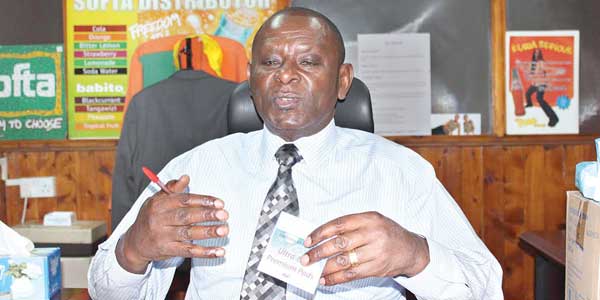[dropcap]P[/dropcap]eter Kuguru is known as the entrepreneur who tried to give soft drinks giant Coca-Cola a run for its money. He considers himself among Kenyan entrepreneurs who have endured harsh and crude business competition to stay afloat. His various subsidiaries are now worth Ksh1 billion
In 1998, his carbonated drink Softa hit the markets to a mixed review. In some quarters it was viewed as a bold move while others it was dismissed. He also tried to establish a financial institution under the political umbrella of Gikuyu, Embu, Ameru Association, but the intrigues around it derailed takeoff.
He is the founder and CEO of Kuguru Food Complex Ltd (KFCL), one of the top manufactures of beverages in the Kenya. He now runs several subsidiaries such as Softa Bottling Company, Cateress Milling Sanitary Pads and Diapers International and Just Real Estate.
KFCL is a family business founded by the family patriarch, Peter Kuguru. In 1988, Kuguru and his wife built up the company for five years before being joined by four new family members.
RELATED >> Kuguru puts Softa soda on sale
After graduating from Massey University in 1972 with a Bachelor’s Degree in technology (food technology) he worked with various companies such as Kenya Commercial Creameries as the chief chemist, House of Manji as the production manager and was also one of the founders of Kenya Bureau of Standards.
“I was unsettled with employment and in 1975 I started producing potato crisps and other snacks back at home. Three years later, in 1978 I quit my job to venture into catering and baking,” he says.
With a bank loan of Ksh110 million, he set up his company and immediately started manufacturing the once famed Chibuku, a South African Sorghum beer, originally operated by the multinational Lonrho in Kenya.
The success of the alcoholic beverages opened the path for KFCL to diversify into mass-market products. KFCL expanded into maize meal starting with two mills followed by procuring plastic manufacturing machines that promoted quality through plastic packaged products.
Local beer intrigues and ‘unfair playground’ stifled the alcoholic drinks venture and Kuguru set his sights on soft drinks. “A soft drink bottling plant and ready to drink fruit juices was the most promising project. With an already established beverage network, I knew this was the best opportunity to venture into,” says the father of nine. In 1998, he launched Softa soda which came with different tastes of cola, orange, bitter lemon, lemonade and pineapple.

“At first we were doing well since we used vernacular radio to advertise our products but our competitors started using the channels too and run after our business. Competitors even coaxed distributors to stop selling our products. This was a great drawback,” says the 70-year old businessman.
After various drawbacks and ridicules, Kuguru stopped producing Softa countrywide and concentrated on central Kenya. Though the sales were not so good, he says that they managed to keep their prices lower than those of multinational companies.
Kuguru also make juices, water, maize flour, animal feeds and sanitary towels and diapers. To stay afloat, the company set up a subsidiary, Sanitary Pads and Diapers International.
Dared to dream big
When asked why they have ventured into this markets, he says: “Most pads in our market are made internationally using super gel, but we are using a new technology from China which uses a gel, which is leak proof,” he says. Currently the company is worth more than ksh1b.
“We work with a Chinese company, but we are planning to buy our own machines to produce 160,000 pads per month. Our pads are sold at Nakumatt and Chandarana supermarkets,” says Kuguru.
His legacy? “I want to be remembered as the entrepreneur who dared to dream big,” says Mr Kuguru. After all, he is the man who tried to give the soft drink multinational, Coca Cola a run for its money.
He has captured his trials and triumphs in business in his book: Trailblazer: Breaking Through in Kenya. (mediamax)












Leave a comment